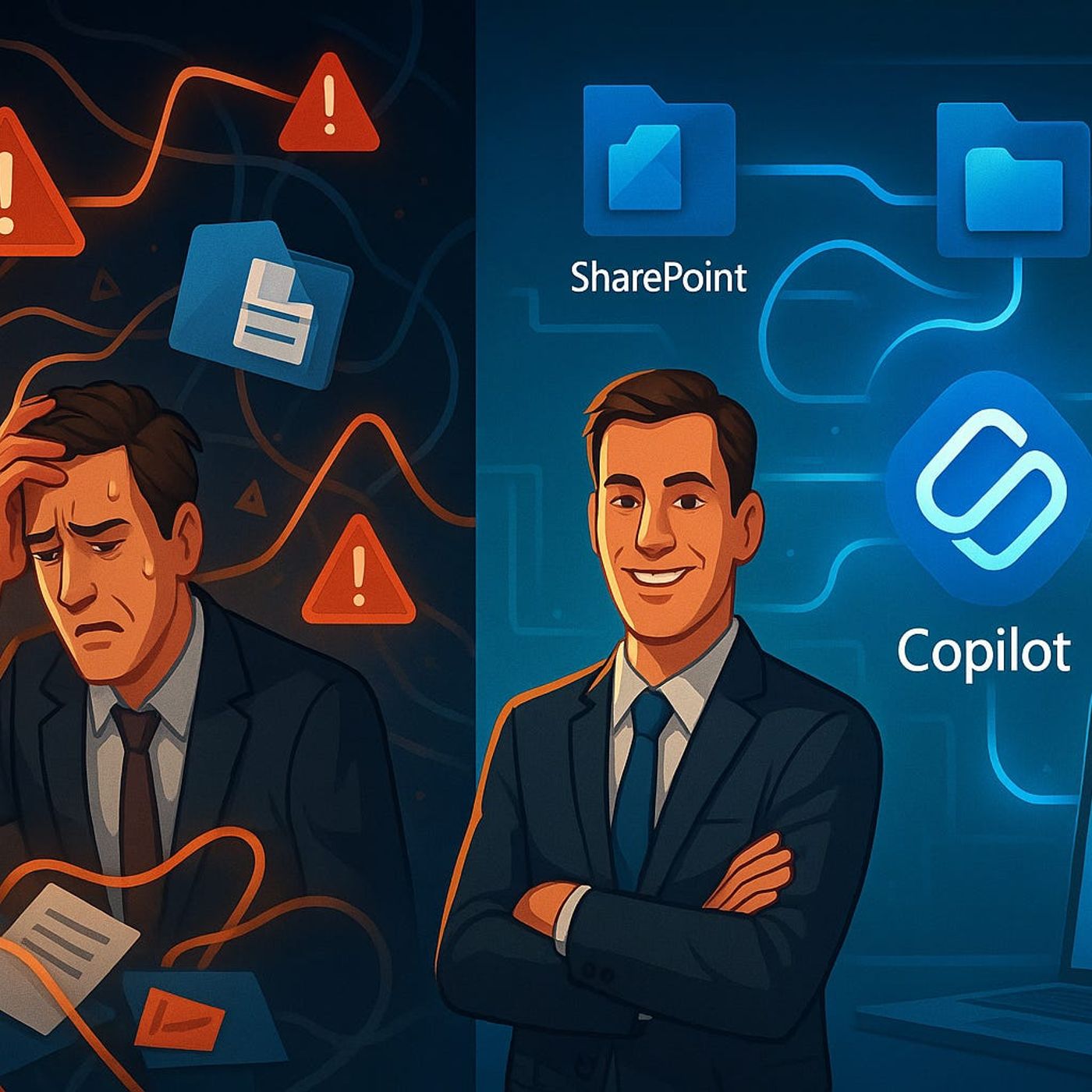Podcast Episode Details
Back to Podcast Episodes
10 Dirty Data Habits Killing Copilot’s Potential
What if I told you the biggest reason Copilot feels underwhelming in your workflow has nothing to do with the AI model—and everything to do with your data? Think about it: Copilot only knows what you feed it. And if what you’re feeding it is sloppy, outdated, or hidden behind broken permissions, you’re not getting value—you’re getting noise. Today, we’re cutting through that noise with 10 best practices that will flip Copilot from a guessing game into a precision tool. The preview? Your current setup could be one adjusting away from unleashing Copilot’s real power.The Silent Saboteurs Hiding in SharePointEver wonder why Copilot’s answers sometimes feel vague, even when you’re sure the data exists somewhere in your tenant? The culprit is often hiding in plain sight, sitting silently in neglected SharePoint libraries. These libraries, once created with the best of intentions, turn into overstuffed dumping grounds as time moves on. Every project, every handover, every poorly named folder adds to the pile. Before long, you’ve got what some admins call “data graveyards,” collections of files that no longer serve a purpose but still live in the same environment Copilot is expected to crawl. That buildup becomes an invisible drag on how effectively Copilot works day to day. Think about how most organizations use SharePoint. Initial enthusiasm fuels the structure—teams spin up neat folders, maybe even apply some metadata. But over the months and years, the maintenance fades. Files get duplicated because it’s quicker than finding the right version. Department A names something “Final\_Draft,” while Department B calls their version “Final\_Draft\_Copy.” Users save outdated versions in shared libraries rather than personal storage, thinking it’ll be easier for everyone to find later. Multiply that across hundreds of libraries and suddenly Copilot faces tens of thousands of potential “answers,” many of them conflicting. Now, instead of returning a confident, contextual response, Copilot is caught between contradicting files, each claiming to be the source of truth. It’s a lot like opening your garage after five years of ignoring it. Sure, the tools you need are technically there somewhere, but they’re buried under broken toys, boxes of holiday decorations, and a treadmill you swore you’d get back on. If you asked someone else to find what you need in that mess, they’d probably come back with the wrong wrench—or worse, give up entirely. That’s exactly what Copilot deals with when it tries to navigate a cluttered SharePoint instance. It searches, it finds, but with no clear indicators of which version is authoritative, you end up with general, surface-level outputs that don’t inspire much trust. This isn’t just opinion—it’s tied to how AI models handle unstructured data overall. When data lacks consistent labeling, organization, or context, machine learning engines waste processing cycles guessing rather than delivering precision. In practical terms, that means more vague summaries, less accurate references, and weaker insights. Instead of leveraging the power of context to tighten answers, the system drowns in noise. So when business leaders complain that Copilot feels “basic,” much of the disappointment comes back to the structure—or lack thereof—of the underlying data estate. And metadata, or the absence of it, plays a bigger role than most teams realize. Good metadata works like a road sign. It points Copilot directly to what’s relevant. Without it, the system has nothing to distinguish between two files with near-identical names. Basic tags like department, region, or project phase can make the difference between a response that’s dead on and one that’s frustratingly off target. But in most organizations, tagging gets skipped either because users see it as busywork or governance simply hasn’t prioritized it. That’s how unstructured piles grow into unmanageable silos, and silos are deadly for an AI that relies on context above all else.
Published on 6 days, 16 hours ago